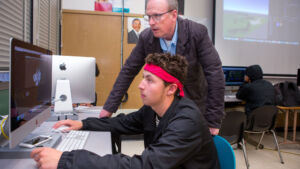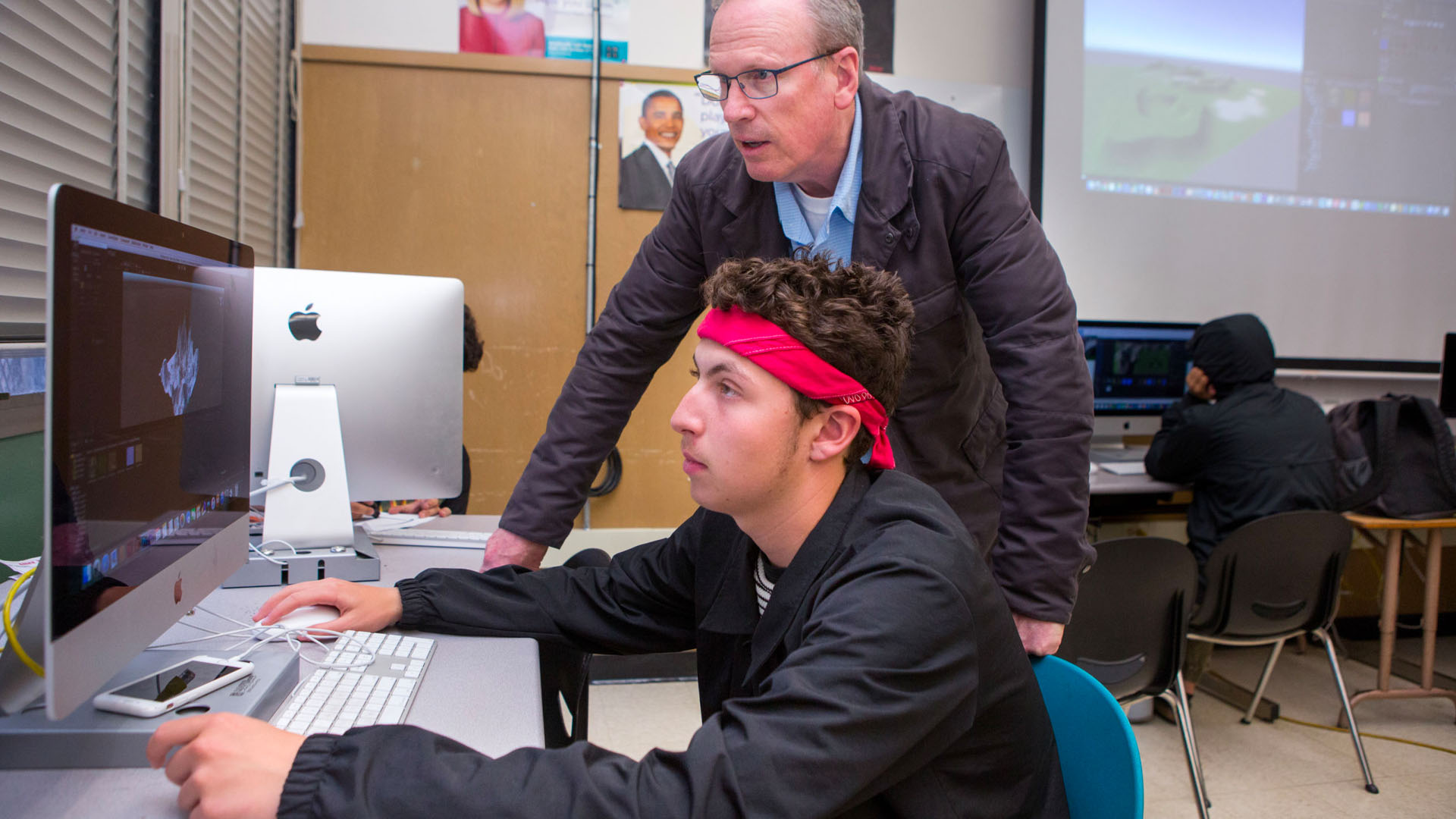It was summer school, remedial Algebra 1, and although the students did not live up to my worst nightmares, they were not too far from expectation. The apathy in the room was thick, and the drooping eyes and bobbing heads from lack of sleep were even thicker. I went back to the book I’d been reading, Developing Self-Regulated Learners, by Barry Zimmerman and others. The examples in the book didn’t describe what I was seeing in my classroom, but it didn’t stop me from wondering, “If it can work with this group, even a little bit, we’ll be ahead of the game.”
I wanted to see if I could increase the students’ levels of achievement by increasing their ability to monitor their own learning behaviors and study strategies, as well as increasing their confidence in themselves as math students. In short, I wanted them to see that if they changed their preparation for a quiz, they could change the outcome of that quiz.

The process involved several steps. First there was some discussion about prior performance. When asked why they had failed previously, many of them placed blame on the teacher they had. Very few of them attributed their failure to themselves or their own lack of use of specific strategies such as note taking or studying. There was also some discussion about study strategies, learning strategies, and the strategies successful students use.
I had the students take a 10-point quiz every week, before which they would give themselves a confidence rating. On the day before each quiz the students were to estimate the score they expected to get, then adjust that score based on their confidence about attaining at least that score. If the student was not sure of attaining that score, 1 point was subtracted. If the student was somewhat sure of getting the estimated score, 0 points were added. If the student was absolutely sure that at least the estimated score would be reached, 1 point was added. These confidence points adjusted their prediction, not their actual score on the quiz.
The students then took the quiz and compared their actual score to their confidence rating. The students were asked to think about the connections between their rating and their score. For example, if a student’s confidence rating was an 8, but he scored a 3, I would want him to begin to think about and be realistic about the exact nature of his study habits, or lack thereof. Likewise, if a student scored a 9, but expected to get a 3, I would ask her to focus on finding out what she did to prepare and what she thought worked. I would have discussions with both of these students to talk about why their expectations were so different from their outcomes.
I’m convinced most struggling students do not make any connection between their preparation for a test and their outcome. As teachers, we hand back tests all the time to students who fail and we hear, “Why did I get an F?” We ask back, “Did you study?” They reply, “No,” with no more thought about it than that. These students have an expectation they can do little or nothing and still gain a lot. They do not see a connection between their preparation and their outcomes.
“I’m convinced most struggling students do not make any connection between their preparation for a test and their outcome.”

During the 6 weeks of summer school I also tried to conference with the students as much as possible. During the conferences we talked about specific strategies the students thought were important and doable. We talked about the strategies used by other students they thought were successful. We also talked about the importance of change and the idea that if you want to change any outcome of an event, you have to change the preparation for that event.
Over the course of my time with them I began to see unexpected changes in them. I attribute most of the positive changes to the fact they were beginning to monitor their own behavior and learning. I was no longer the only motivating force in the room. Students began to see a connection between their preparation for a quiz and their outcomes. Some began to volunteer more, some were less disruptive and more attentive, and I saw much more practice outside of the class being completed.
“Over the course of my time with them I began to see unexpected changes in them.”
They did these things on their own, not because it was assigned or because I was bribing them with participation grades or extra credit if they did it (because I wasn’t!). There were no extrinsic motivators provided by me causing the change in habits. They did these things because they saw a benefit for themselves in doing so. They were self-monitoring and self-motivating.
For more information including data from case studies of individual students, contact Jeff Harker at jharker@ciesc.org. An article about the student was published in Linking, a newsletter by the Indiana Staff Development Council.
Resources
Please login or register to claim PGPs.
Alternatively, you may use the PGP Request Form if you prefer to not register an account.



